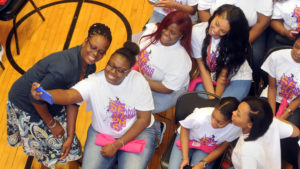 Several states offer free tuition programs for students to attend state colleges and universities. The programs require various qualifiers including but not limited to state residency, maximum income cutoff, community service or attendance requirements and/or a minimum 2.5 grade point average in high school. All programs also require parents and students to fill out the FAFSA form to assess financial need. All the Places in the U.S. Where You Can Go to College for Free by Kaitlin Mulhere outlines 37 programs in 19 states. One of these could reduce your cost of a college education by thousands of dollars.
Several states offer free tuition programs for students to attend state colleges and universities. The programs require various qualifiers including but not limited to state residency, maximum income cutoff, community service or attendance requirements and/or a minimum 2.5 grade point average in high school. All programs also require parents and students to fill out the FAFSA form to assess financial need. All the Places in the U.S. Where You Can Go to College for Free by Kaitlin Mulhere outlines 37 programs in 19 states. One of these could reduce your cost of a college education by thousands of dollars.
Tag Archives: College in Four Years
Is An Ivy League Education Really Worth It?
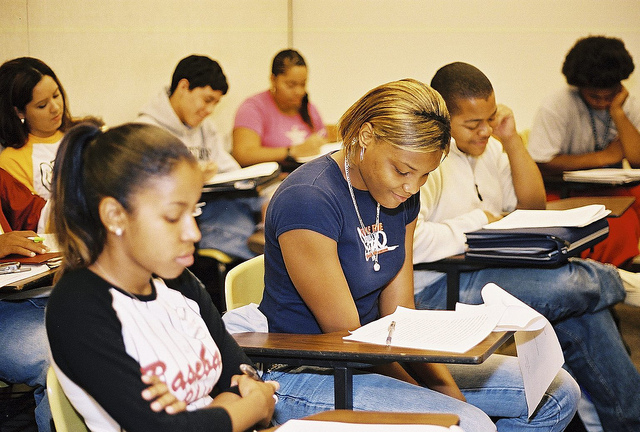
Should you send your son or daughter to an Ivy League college or university or another high quality school that does not have the prestige or the cost of the Ivies? This is a question parents all over the country wrestle with every year as decisions about where students will be in the fall are made. The choice of a college or university depends on many things the most important of which is the student. Each family should send their son or daughter to the school the fits him or her best and that fits their budget for college. In Ivy League or Bust? , Kristin Battista-Frazee’s recent article on Huffington Post does an excellent job of setting out the factors to be evaluated when making this important decision. I strongly recommend that you read this article before deciding on a college or university.
How To Reduce College Dropouts
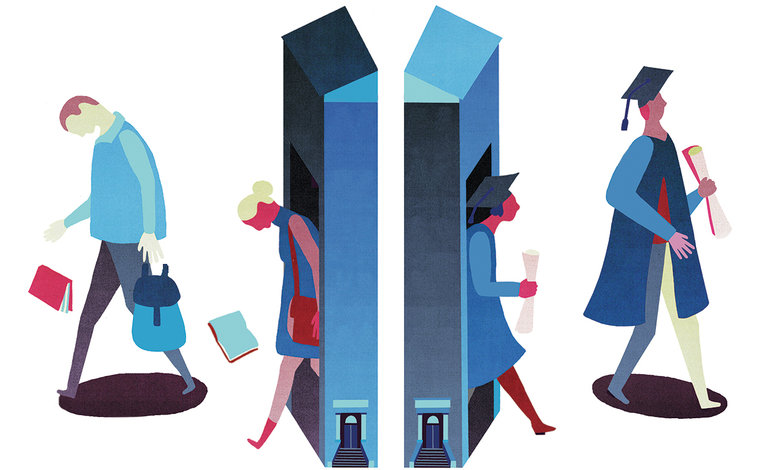 Follow the link below to read an interesting article on what some universities are doing to significantly reduce the number of students who start but don’t finish college. How do you think these strategies would work at your college or university?
Follow the link below to read an interesting article on what some universities are doing to significantly reduce the number of students who start but don’t finish college. How do you think these strategies would work at your college or university?
http://www.nytimes.com/2016/05/01/opinion/sunday/what-can-stop-kids-from-dropping-out.html?_r=0
The Virginia Festival of the Book – A Wonderful Experience
In March, Donna and I were presenting authors at the Virginia Festival of the Book. I participated in three events. On Wednesday March 16th, I talked with fifty students at Albemarle High School about preparing for success in college. Several of the students told me how much they appreciated the advice and how I shared it with them and the teachers were glad to hear their messages reinforced by someone the students enjoyed listening to.
Wednesday evening, I was one of two panelists discussing the adolescent mindset and the best ways to help students prepare for and have a successful college experience leading to graduation in four years with good grades and good job prospects. There was a standing room only audience who had sons and daughters in college or preparing to go so they were quite interested in our presentations. They demonstrated their interest by purchasing all the books I had brought for sale!
Finally, Sunday morning I briefly discussed College In Four Years at the Links of Charlottesville brunch for Festival authors who wrote books relevant to African Americans and/or people of color. I told the audience of 200 about the value of the book for students and parents and how it could be instrumental in helping them work together for success in college. The message resonated with them and they also purchased every book available for sale.
In addition to these presentations, I will be sharing more information with students in Charlottesville high schools in May.
Needless to say, I am thankful for the opportunity to participate in the Virginia Festival of the Book and thrilled with the reception College In Four Years got at all the events and with an opportunity to share information with more students in May. Take a look at the pictures below from the events.
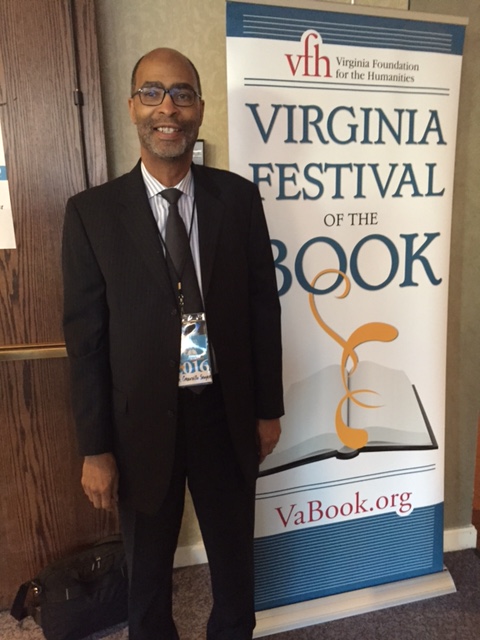
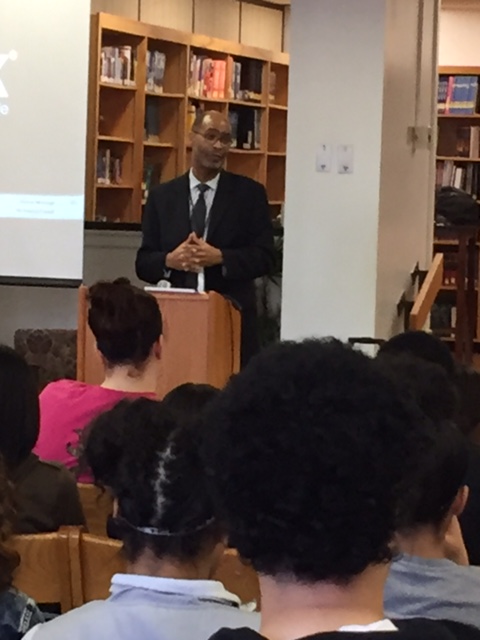

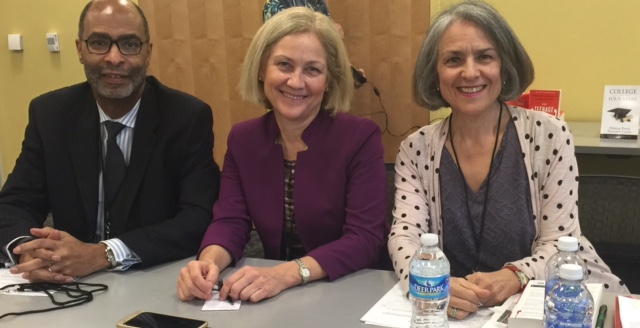
The Virginia Festival of the Book
 I want to let you know that I will be participating in the Virginia Festival of the Book later this month. Here’s a list of the events, dates, times and locations. I hope you can join me there:
I want to let you know that I will be participating in the Virginia Festival of the Book later this month. Here’s a list of the events, dates, times and locations. I hope you can join me there:
Presentation of College in Four Years at Albemarle High School at 2775 Hydraulic Road, Charlottesville, Virginia 22901. The presentation will be at 10:30 AM on Wednesday March 16th.
A discussion of College In Four Years as part of the Virginia Festival of the Book at 6:00 PM on March 16th at the Northside Library at 705 Rio Road, West Charlottesville, Virginia 22901. The discussion will be from 6:00 PM to 7:30 PM.
Participation in the 13th annual Celebration Brunch 11:30 AM–2:30PM at the Charlottesville Omni Hotel on Sunday, March 20, 2016 sponsored by the Links of Charlottesville where each author will briefly discuss his/her book.
Dr. Granville M. Sawyer, Jr. Appears on The Thornton Business Hour Wednesday, January 20, 11:00 AM, WOL 1450 AM
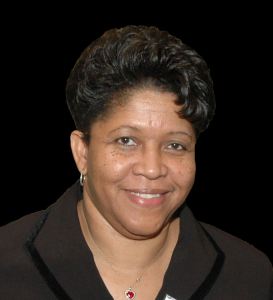
I’ll be the guest of Pat Thornton, on her radio show, The Thornton Business Hour on WOL 1450 AM tomorrow January 20th at 11:00. You can also listen to the live stream at http://woldcnews.newsone.com/ if you are outside of the listening area.
Pat and I will be talking about how to earn a college degree in less time with less stress for less money. If you would like to leave a comment or a question that you would like for me to answer during the show please do so in the comments section below and tag it #ThorntonBusinessHour.
Have a Wonderful 2016

How Good Is That High School Diploma?

I’ve been reading with some concern about accountability for k-12 education going back to the individual states as a result of No Child Left Behind being discontinued. This will make national evaluations of high school students’ abilities harder. Every high school graduate should have some idea of how he/she compares with graduates from other high schools across the nation because the market for jobs is national and becoming more international every day. Allowing states to be individually responsible for assessing what their students know and can do will make this more difficult. An article from the New York Times shows why this is so important.
How can we ensure that all students get the quality public school education they deserve? Let me know what you think.
Dr. Granville Sawyer on Wealthy Radio with Deborah Owens, Tuesday, November 3, 7:30 pm, WEAA 88.9 FM
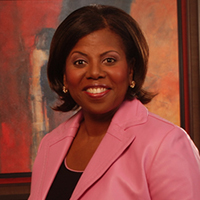
I’ll be the guest of Deborah Owens, The Wealth Coach, on her radio show, Wealthy Radio, on Tuesday, November 3, 7:30 pm, on Baltimore’s NPR affiliate WEAA, 88.9 FM. You can also listen to the live stream at http://weaa.org if you are outside of the listening area.
Deborah and I will be talking about how to earn a college degree in less time for less money. If you would like to join the conversation by asking a question call 410-319-8888 during the show or, leave a comment below and tag it #WealthyRadioChat.
Achievement Gap Economics
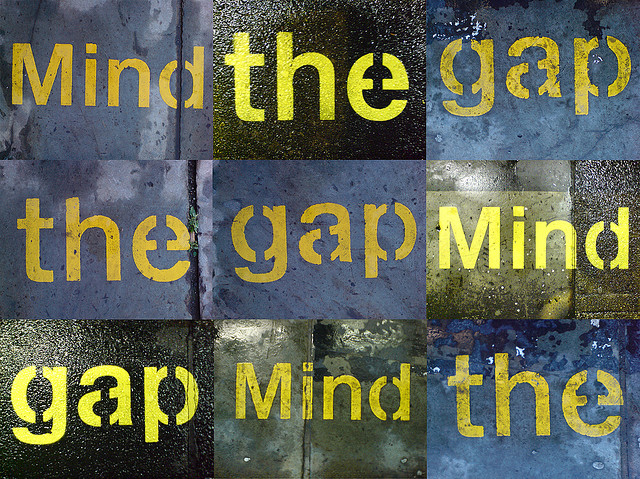 A recent article in the New York Times focused on achievement gaps caused by socio economic differences instead of racial differences between students in America. These achievement gaps begin to show up early – cognitive differences start to appear in children from the top and bottom socio economic sectors in America before kindergarten and only increase as they progress through school. Furthermore, the achievement gap between high and low income students has increased. Since 1970, the achievement gap on standardized test of reading has increased by almost 40% between the 10th and 90th percentile household income .
A recent article in the New York Times focused on achievement gaps caused by socio economic differences instead of racial differences between students in America. These achievement gaps begin to show up early – cognitive differences start to appear in children from the top and bottom socio economic sectors in America before kindergarten and only increase as they progress through school. Furthermore, the achievement gap between high and low income students has increased. Since 1970, the achievement gap on standardized test of reading has increased by almost 40% between the 10th and 90th percentile household income .
What this means is that there is limited upward mobility in America – more limited than in most first world countries. A child born to parents with income in the lowest bracket is ten times more likely to end up in that same lower bracket than they are to rise to the highest bracket as an adult (43 percent versus 4 percent). And, a child born to parents in the highest income bracket is five times more likely to stay there than end up there than the lowest (40 percent versus 8 percent). These results run counter to the historic vision of the United States as a land of equal opportunity.
The good news is that a college degree can make a big difference. Without a college degree a child born into a family in the lowest income bracket has a 45 percent chance of staying there forever and only a 5 percent chance of moving up into the top bracket. Children born into the lowest income bracket who do earn a college degree have only a 16 percent chance of staying there and a 19 percent chance of moving up into the top bracket.
Upward mobility means more than just money. Parents in higher socioeconomic brackets invest not only more money in their children, but more time as well. On average, mothers with a college degree spend 4.5 more hours each week engaging with their children than mothers with only a high school diploma or less. This means that, among other things, by age three, children of parents who are professionals have vocabularies that are 50 percent larger than those of children from working-class families, and 100 percent larger than those of children whose families receive welfare, disparities that some researchers ascribe to differences in how much parents engage and speak with their children. By the time they are three, children born to parents who are professionals have heard about 30 million more words than children born to parents who receive welfare. Additional language skills put child at a distinct advantage when they start school and will probably follow them throughout their educational career.
All of this information makes getting a college degree even more important for all students – especially disadvantaged students. It’s the best investment they can make with a higher return than any other way to invest the cost of a college education. It doesn’t just mean more money, it can mean changing the path taken in life. If you’re in high school now, do the best you can and do everything you can to get a college degree. If you are in college, stay there until you’re finished. Getting that degree can be a life changing experience for you and for all the stakeholders in your life.